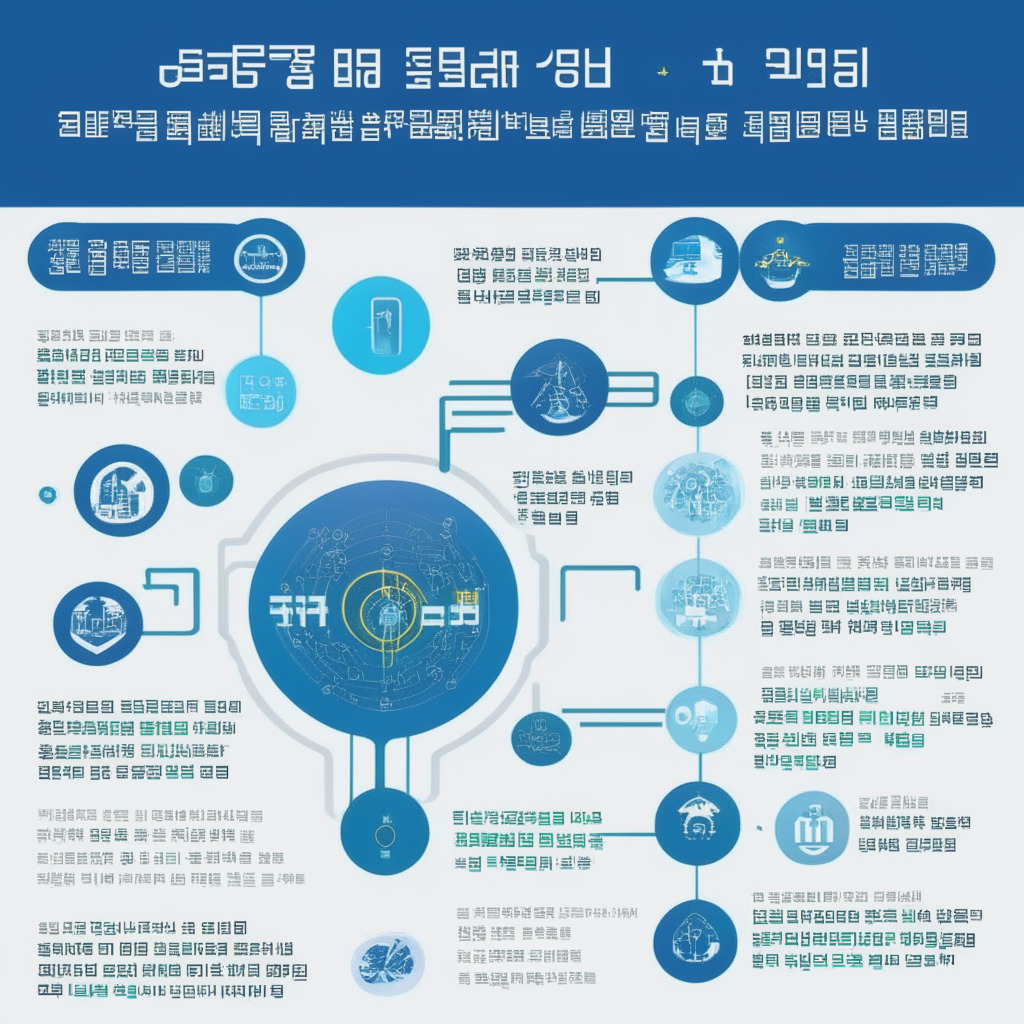The phenomenon of ‘Content Cannibalism’ in Artificial Intelligence is dampening its credibility, leading to a decay in output quality. Sam Altman of OpenAI suggests maintaining quality by prioritizing human content. High-profile AIs like Bill Gates argue for a measured approach, managing potential AI risks.
Search Results for: Microsoft
Exploring On-chain 2FA: MultiversX’s Innovation and Celsius’s FTC Woes
“MultiversX is set to revolutionize transactional security with the launch of on-chain two-factor authentication (2FA). Unlike existing measures, it doesn’t require additional private keys storage and could potentially redefine global blockchain protocols. However, its reliance on third-party systems raises questions about transactional integrity.”
Google’s Bard Launch in EU and Brazil: Triumph Amid Regulatory Hurdles & Dwindling Novelty
Google’s AI tool, Bard, has recently launched in the European Union and Brazil despite regulatory complications. Bard, now able to respond in over 40 languages, encompasses new features including spoken responses and image analyses. However, its release coincides with a class-action lawsuit in the US accusing Google of misusing personal data for AI system training.
Humanizing AI: Steering Towards Empathy or Courting Disaster?
“Introducing human-like features in AI aligning with human values could create a reciprocal relationship between humanity and machines. However, we must weigh potential risks considering humans’ propensity for destructive actions. The confrontation lies in ensuring benevolent behavior from such superior entities towards humanity.”
Unfair Practices or Unjust Scrutiny: FTC Probes into OpenAI’s ChatGPT and Its Implications
The Federal Trade Commission is rigorously investigating OpenAI’s ChatGPT, an AI conversation bot, for potential “unfair or deceptive privacy or data security practices”. This scrutiny raises questions about OpenAI’s privacy and data security protocol, and hints at possible financial penalties if any infractions are found. The tool’s undeniable potential is offset by significant ethical considerations and potential for misuse.
Navigating the Tides: Recent Market Shifts and What They Mean for the Blockchain Future
“A remarkable shift in the crypto markets kindled interest in AI-related tokens following Elon Musk’s announcement of a new AI company, xAI. Cryptocurrencies’ ecosystem receives another boost as Telegram expands their chat-centric payments system suggesting a significant stride in mainstream crypto usage.”
Elon Musk’s xAI Venture: Unraveling the Universe or Ethical Conundrum?
“Elon Musk’s new venture, “xAI”, aims to unravel the “true nature of the universe”. The project, intending to collaborate with Tesla and Twitter, walks a thin line between ambitious innovation and ethical boundaries. Critics argue the potential risk of unchecked AI development, sparking a dichotomy of perspectives on AI’s future.”
AI-Boosted Crypto Tokens Soar Following Elon Musk’s New Venture Announcement: Promising Future or Eruption of Skepticism?
“AI-related crypto tokens such as SingularityNET (AGIX) and Fetch.ai (FET) soared after Elon Musk’s announcement of new AI company, xAI. The announcement triggered an interest in AI-related cryptocurrency, however, questions about xAI’s operational model and its effect on crypto tokens remain.”
Unmasking the Gutsy NFT Heists: How Safe is Your Digital Art Collection Really?
The crypto world recently witnessed a major hack, targeting the Ethereum-based NFT collection, Gutter Cat Gang, resulting in a loss range of $750K-$900K. This sophisticated attack stole 87 NFTs from 16 individuals, leveraging the Gutter Cat Gang’s Twitter for a fake public airdrop. The incident highlights the critical need for extensive security measures to protect crypto assets and platforms.
Crypto Job Market in Hong Kong: Not as Hot as Expected? The Rising Interest in AI Jobs Explained
Hong Kong’s crypto licensing regime excitement hasn’t translated into job opportunities. The uncertainty and volatility of the crypto industry deter potential job-seekers. Despite this, optimists like Kevin Gibson predict a surge in crypto employment once companies secure their licenses.
AI Vs. Crypto Jobs: Riding the Waves of Technology Trends and Market Sentiments
“A recent study shows ‘AI jobs’ dominating ‘crypto jobs’ in online searches, with AI’s popularity as an employment sector historically surpassing crypto. Interest in ‘crypto jobs’ spiked with the 2021 cryptocurrency burst but dropped due to various factors including a bearish downturn and regulatory scrutiny.”
Regulation of AI-Generated Content: A Fight Between Innovation and Misinformation
US Senator Michael Bennet has urged tech companies to label AI-generated content to prevent misinformation and uphold public dialogue integrity. This echoes global concerns, with European Commission Vice President Vera Jourova also advocating for companies using generative AI tools to label their content, to prevent the spread of misinformation.
Massive Funding of Inflection AI: Bold Leap into Large-Scale AI or a Potential Setback
“Inflection AI, having secured $1.3B in funding from industry giants, plans to construct a 22,000-unit NVIDIA GPU cluster for large-scale AI models. However, some suggest that technological limitations could make these models inefficient, advocating for smaller, target-specific AI models instead.”
The Candy Digital–Palm NFT Studio Merger: Fast-tracking Licensed NFT Projects or Pushing Cryptocurrencies into Dangerous Territory?
Digital collectibles giant, Candy Digital, and Web3 company, Palm NFT Studio, have unveiled a collaborative merger aimed to enhance digital interactions across varied fields such as sports and entertainment. The merging of these companies hopes to improve fan engagement through the creation of NFTs, providing an expanded platform for brands to connect with fans.
Amazon’s $100M Generative AI Center: Boosting Cloud Services or Raising Privacy Concerns?
Amazon’s cloud unit, AWS, invests $100 million in a generative AI center to enhance cloud infrastructure services capabilities and maintain market leadership. This move aims to bridge the gap between Amazon’s AI experts and clients seeking advanced technology applications, amidst rising competition from Microsoft and Google.
AI’s Impact on Translation Industry: Pros, Cons, and Future Developments
AI-powered translation systems like Neural Machine Translation (NMT) are revolutionizing the translation industry by offering speed, efficiency, and continuous improvement. Although concerns regarding limitations persist, advancements in AI technology promise more accurate and contextually appropriate translations in the future.
South Korean Giant KT’s $5.3B AI Ambition: A Game Changer or Overreach? Pros, Cons, and Conflicts
South Korean mobile giant KT pledges to invest $5.3 billion in AI research and development over the next five years to become an industry leader. With plans in AI-driven customer service, healthcare, education, logistics, and robotics, KT faces tough competition from global tech giants like Amazon, Microsoft, Adobe, and Zoom in this highly competitive market.
Brazil’s Digital Real Pilot Project: Balancing Innovation and Privacy Concerns
Brazil’s central bank authorizes Mercado Bitcoin, the largest local crypto exchange, to join a pilot project for the digital real, with plans to test CBDC issuance and treasury bills. The project highlights the importance of innovation, trust, and compliance in the digital assets ecosystem, while addressing privacy and security concerns.
Polygon Copilot: Revolutionizing Web3 with AI-Powered Assistance and User Experience
Polygon Copilot, an AI assistant developed in partnership with LayerE, integrates OpenAI’s GPT-3.5 and GPT-4 to enhance user experience in the Ethereum-compatible blockchain ecosystem. Offering insights, analytics, and guidance, Polygon Copilot makes navigating decentralized applications more accessible and user-friendly, highlighting AI’s growing importance in the blockchain and cryptocurrency industries.
AI Safety Legislation: Balancing Innovation and Public Trust in the Era of Artificial Intelligence
US Senate Majority Leader Chuck Schumer plans to call for comprehensive legislation regarding AI safety measures, emphasizing bipartisan action from Congress. Addressing safe innovation, privacy, biases, and misinformation, Schumer aims to ensure responsible and secure AI development while maintaining public trust in the technology.
Biden’s AI Summit: Balancing Innovation, Regulation, and Blockchain Implications
President Joe Biden is set to meet with AI experts to discuss the future of artificial intelligence and the need for legislation and guidelines. This comes at a time when the U.S. government has yet to establish a comprehensive strategy for AI development and cryptocurrency regulation, while Europe, China, and the United Kingdom have already made progress in these areas. The meeting aims to address concerns on policy, regulation, and balancing innovation with safety and risk mitigation.
7 ChatGPT Alternatives: Exploring the Future of Conversational AI Platforms
Explore seven ChatGPT alternatives, including Google Bard, Bing AI, ChatSonic, You.com, Jasper AI, Perplexity AI, and GitHub Copilot, each offering unique features for different natural language processing tasks. Catering to diverse user needs, find the best AI-driven tool to suit your requirements.
AI’s Promising Future vs Ethical Implications: Striking the Right Balance for Sustainability
This article discusses the history and advancements of artificial intelligence (AI) and its integration into various aspects of our lives while addressing ethical and practical implications such as data privacy, biases, and job displacement. It highlights the importance of finding a balance between AI benefits and potential challenges.
Generative AI’s Trillion-Dollar Impact: Balancing Economic Growth and Workforce Risks
Generative AI’s rising popularity, with applications like ChatGPT and Stable Diffusion, could contribute up to $4.4 trillion annually to the global economy, revolutionizing various industries. McKinsey predicts automation of 60-70% of work activities while managing workforce transitions and risks remains a challenge.
Crypto Hires Key Players Amidst SEC Crackdown: A Struggle for Trust and Growth
Binance hires Rachel Conlan as VP of global marketing amidst increasing SEC enforcement actions, while Circle welcomes Heath Tarbert as chief legal officer and head of corporate affairs. These key appointments come as the crypto industry faces stringent regulations, providing opportunities for exchanges and issuers to prove their legitimacy and resilience.
South Korea: Emerging Powerhouse in AI Chip Development and Collaboration with OpenAI
OpenAI CEO Sam Altman recently met with South Korean President Yoon Suk Yeol, discussing South Korea’s potential to lead in AI chip development, and expressing interest in investing in Korean startups and collaborating with chipmakers like Samsung Electronics. Altman encouraged reduced corporate regulations to foster AI projects and strengthen international standards.
SEC Summer Crackdown on Binance & Coinbase: Legal Clarity or Market Fiasco?
The SEC has targeted Binance and Coinbase in its recent crypto crackdown, resulting in 13 charges against Binance and accusations of unregistered securities offerings against Coinbase. Despite ongoing uncertainty, these events may bring desired legal clarity to the industry.
Minecraft’s NFT Ban: A Battle Between Blockchain Exclusivity and Gaming Inclusion
Minecraft plans to ban NFTs on player-operated servers, as Mojang believes integrating NFTs contradicts the game’s core values of creative inclusion and shared play. The ban impacts existing Web3 projects, sparking a complex debate on blockchain technology and gaming values.
Luxury NFTs, Apple’s Vision Pro, and the Growing NFT Lending Market: Risks and Rewards
This week in technology, Louis Vuitton enters the NFT market with Via Treasure Trunks, Apple announces Vision Pro mixed reality headset, and NFT lending market sees growth with Binance NFT Loan. However, critics caution against potential pitfalls surrounding NFT lending platforms.
Balancing AI Advancement: Unhindered Progress vs. Safe Development and Regulation
Marc Andreessen advocates for competition and open-source AI accessibility, while emphasizing collaboration between governments and the private sector to address AI’s potential risks. Balancing rapid development with judicious use and regulation is critical for AI’s future advancements.
Navigating AI’s Promising Future Amidst Deepfakes, Job Loss, and Singularity Risks
AI’s rapid advancement brings potential risks such as deepfakes, privacy invasion, job loss concerns, technological fallacy, financial market volatility, and the Singularity concept with ethical questions. Society must address these challenges to ensure a safe, responsible future.
Exploring the Metaverse Gold Rush: Opportunities, Risks, and Investment Strategies
The metaverse industry is potentially worth trillions, with investments pouring into blockchain-based projects. However, market cap losses and speculative transactions warrant caution among investors. Despite challenges, tech giants like Microsoft, Apple, Nvidia, and Qualcomm continue developing metaverse strategies, indicating a promising future.






























